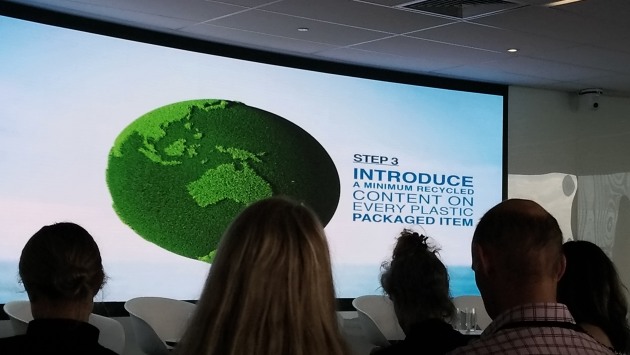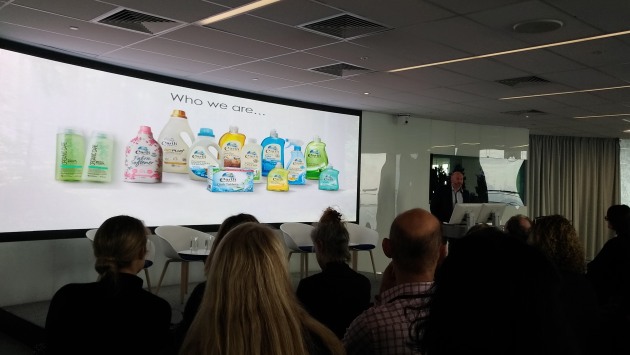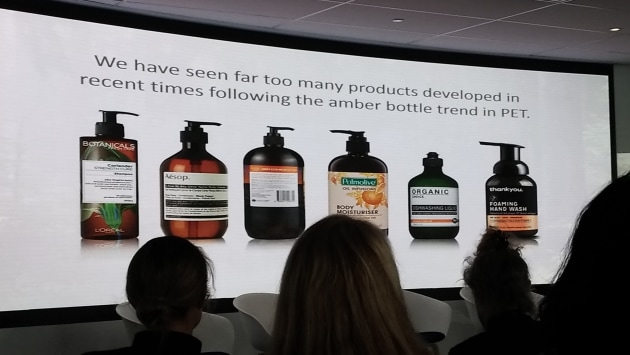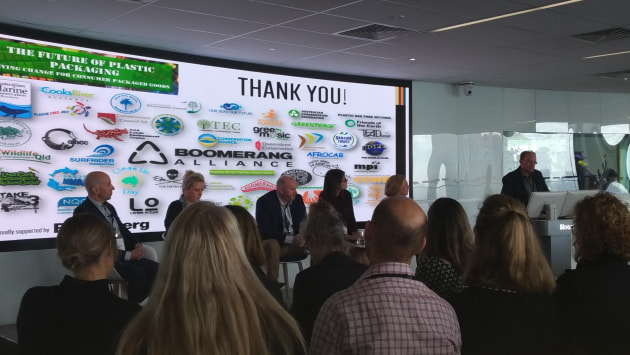Australian consumers are more concerned about plastic waste than ever before, according to panellists at a seminar dedicated to discussing change in consumer packaged goods. PKN was there.
Key stakeholders gathered at the Bloomberg offices in Sydney today to speak about the future of plastic packaging and the companies making the biggest inroads into a more sustainable future.
The Australian Packaging Covenant Organisation (APCO) CEO Brooke Donnelly told attendees it was “an exciting time to be part of major industry change”.
“We've all got to join the chorus and we've all got a role to play,” she said.
“Our mandate is to reduce the harmful impact of packaging in Australian communities.”
She discussed the strides the APCO had taken in helping roll out the PREP online packaging evaluation tool and the Australian Recycling Label (ARL), and talked about the working groups it had formed to talk through key issues.
She said the APCO's three main focus areas were cutting waste, managing waste, and re-using waste.
“We are driving collaboration towards a true circular economy,” she said.
Earth-friendly leader
Natures Organics CEO Justin Dowel shared his business's story of making products which don't damage the environment, including the packaging.
Natures Organics joined as a signatory to the APCO to be part of the cultural change in designing more sustainable packaging, increasing recycling rates, and reducing packaging litter.
Dowel said the company uses a blow-moulding machine which produces 100 per cent recycled plastic, and is the largest user of recycled PET in Australia.
Natures Organics produces 58 million bottles a year out of post-consumer recycled plastic.
Dowel criticised companies such as Thankyou Group for producing amber-coloured plastic bottles, which can only ever be single-use – and encouraged the widespread shift to clear bottles which can be re-used.
“We need to ban heavily tinted PET plastic – if you want colour, use a coloured sleeve,” he said.
Changes in composting
BioPak's Richard Fine said change would be driven by businesses responding to consumer demand for compostable and genuinely biodegradable packaging.
“There is capacity in Australia for better composting and end-of-life solutions,” he said.
Brooke Donnelly said another focus needed to be on food waste – with 30 per cent of food around the globe thrown away.
She said blaming “wrapped cucumbers” for plastic waste was not always helpful – as plastic could help consumers avoid food waste in many cases.
“We need to find a balance between the functionality and the sustainability of packaging,” she said.










